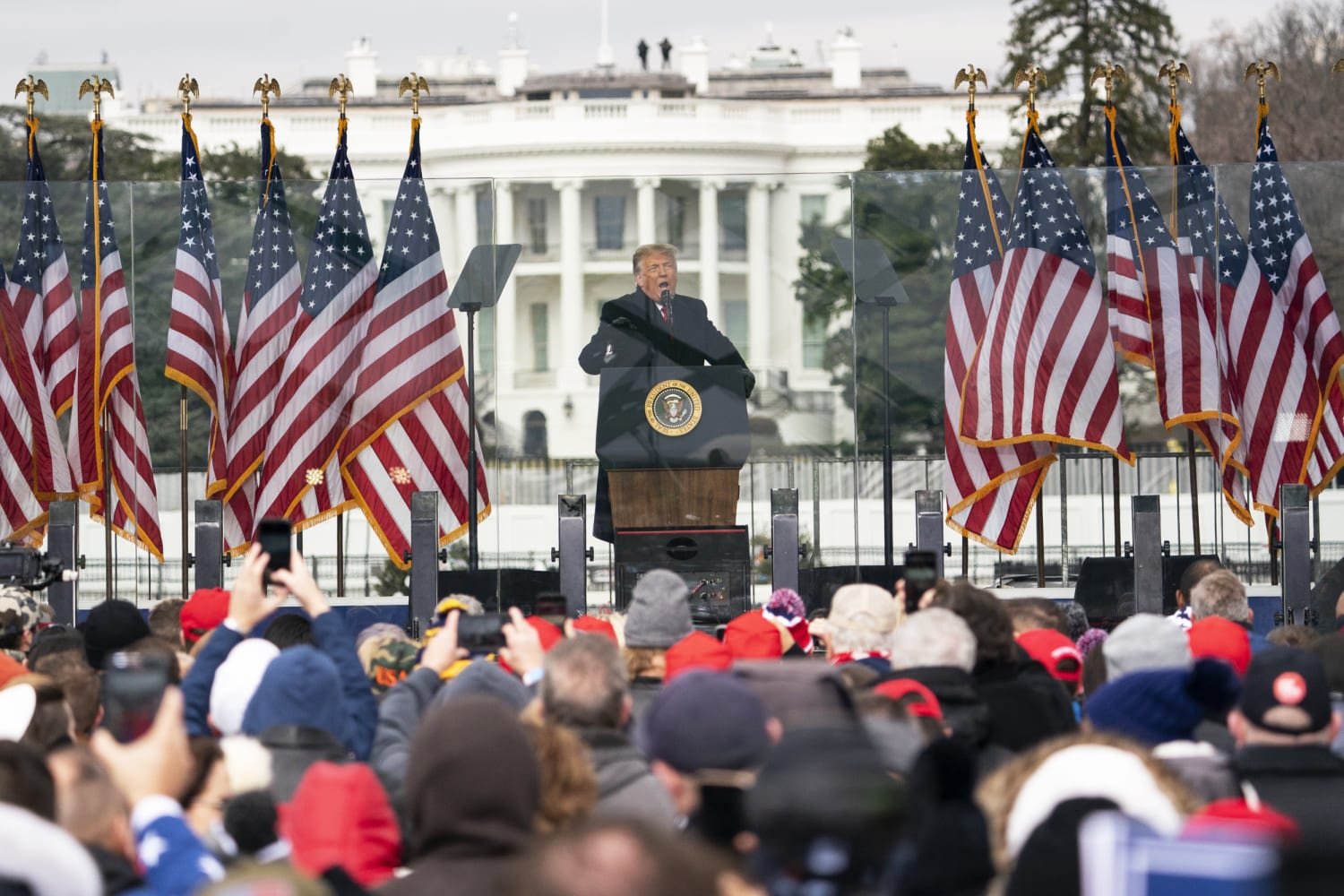On Wednesday, the House committee investigating the Jan. 6 attack on the U.S. Capitol demanded that various federal agencies hand over documents related to the riot. The numerous requests target then-President Donald Trump, members of Trump’s family, members of Congress and congressional staff members, among others.
These questions are key because almost all legal violations (with a few exceptions) require that the accused acted with some degree of intent or knowledge.
The specifics of these demands suggest that the big questions on the minds of committee members are what did Trump — and White House officials — know about the attack on the Capitol, and when did they know it?
These questions are key because almost all legal violations (with a few exceptions) require that the accused acted with some degree of intent or knowledge. The law, for obvious reasons, treats accidental injuries differently from those inflicted intentionally.
So far, more than 570 Americans have been charged in the attack on the Capitol. Prosecutors have brought charges like obstructing an official proceeding (18 US Code 1505) and engaging in “disorderly conduct in a restricted building” (18 U.S. Code 1752).
If Trump or any members of his inner circle intended the rioters to impede the counting of the Electoral College votes by means of disorderly conduct, they, too, could be in violation of these codes.
There is plenty of anecdotal evidence that this was, indeed, the intent. The name of the rally was Stop the Steal, and it was planned for the exact time Congress was meeting. Moreover, Trump directed the rallygoers to the Capitol just as the process was about to start. Trump told the assembled that they needed to demand that Congress “do the right thing and only count the electors who have been lawfully slated.” Trump also made it clear that he wanted Vice President Mike Pence to refuse to confirm Joe Biden’s win. And Republican leaders were clear that “steal” meant denying that Trump won the election.
In a high-profile case such as this one involving a former president and members of Congress, investigators and prosecutors understandably require the evidence to be airtight. Hence the need for documents and contemporaneous notes. It’s evident from the documents demanded that the select committee is applying the same rigor to its investigation. It has asked for:
“… records concerning planning by the White House and others for legal and other strategies to halt and otherwise impede the Electoral Count …”
“Recruitment, Planning, Coordination, and Other Preparations for the Rallies Leading up to and Including January 6th and the Violence on January 6th.”
While the attack on the Capitol was progressing, Trump famously released a few carefully worded videos. Among the other records demanded by the committee are:
“… videos of communications released to the public and communications recorded but not released to the public, any documents or other communications identifying or discussing the content of those videos.”
Videos recorded but not released — and the discussions surrounding them — could show whether Trump wanted to release something different but was prevented from doing so by his inner circle. Knowing what Trump wanted to release could offer evidence about his state of mind and his intention.
Trump’s defenders have pointed out that Trump, during his Jan. 6 speech at the rally, told the crowd, “I know that everyone here will soon be marching over to the Capitol building to peacefully and patriotically make your voices heard.” But members of the crowd wore goggles, camouflage, Army-style helmets and other tactical gear. Thus, the committee has requested:
“All photographs, videos, or other media, including any digital time stamps for such media, taken or recorded within the White House on January 6, 2021, or taken of the crowd assembled for the rally on the morning of January 6, and all communications or other documents related to that media …”
Did Trump actually want a peaceful demonstration? Or did he want plausible deniability?
If Trump or other White House officials saw military tactical gear in the crowd and proceeded to direct people to the Capitol, that could undermine the sincerity of Trump’s use of the word “peacefully.” Such evidence could answer these questions: Did Trump actually want a peaceful demonstration? Or did he want plausible deniability?
Meanwhile, other cases are working their way through the courts with the aim of demonstrating that Trump violated the law on Jan. 6 and during the weeks leading up to that fateful day. Seven U.S. Capitol Police officers filed a lawsuit Thursday against Trump, the Stop the Steal rally organizers and others, alleging that they bear responsibility for the Capitol violence and are thus responsible for the injuries suffered by officers. Specifically, the officers accuse the defendants of encouraging white supremacist extremists to overthrow the election.
Similarly, in March, two police officers, James Blassingame and Sidney Hemby, sued Trump for the injuries they sustained, accusing the former president of directing the rioters to attack the Capitol. Rep. Eric Swalwell, D-Calif., has also sued Trump and several associates in D.C. federal court, alleging that Trump and his co-defendants violated the Ku Klux Klan Act by conspiring to interfere with the Electoral College count.
Discovery in civil cases is broad. The federal rules of civil procedure provide several ways for plaintiffs to get information, including interrogatories, depositions and requests for admission. Parties can also compel third parties to give them access to documents. In other words, these defendants will be entitled to the same documents and testimony the select committee is demanding.
One way or another, the facts will come out. The wheels of justice turn slowly. There are good reasons for the protections and procedures that slow things down. Rule of law, after all, requires procedures for fairness. There will be motions and responses and intermediary rulings, but if Trump and other members of his inner circle and staff bear responsibility for inciting the violence, we should eventially learn the truth.
Source: | This article originally belongs to Nbcnews.com











